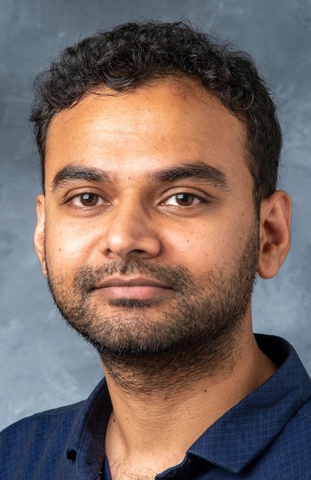By Emily Delgado
Ravitej Uppu, assistant professor in the Department of Physics and Astronomy, has been awarded a prestigious CAREER award from the National Science Foundation. The award is given to early-career faculty for research and education.

The award includes a five-year grant of $550,000, which will fund Uppu’s research in electronic and photonic properties. This is Uppu’s first federal research grant since his appointment at the University of Iowa.
“It is very encouraging to be acknowledged by the research community that our proposed research and methods are at the cutting edge of quantum photonics,” Uppu said.
This grant will help advance Uppu’s project called “Integrated Sources of Multiphoton Entanglement for Enabling Quantum Interconnects.” Specifically, the project will look at how to create entangled states of photons that can meet the demands for implementing quantum communication and computing devices.
“My CAREER proposal would be a first in photonic quantum entanglement and bolsters one of the strategic research directions -- quantum information science -- within our department,” Uppu said.
Uppu said that advances in the quantum physics field are vital and could help discover new technologies, such as in security and medicine.
“Harnessing quantum physics could potentially enable breakthrough technological capabilities from enabling ultimate security in communication to solving the structure of large proteins to design newer and more effective medicine,” Uppu said.
In addition to being excited to pursue his research with this grant, Uppu said he is also excited to share his findings with his students. Currently, Uppu is developing a course that will be based off his research.
“Alongside developing a graduate course on the basic physics aspects of my research, and training graduate and undergraduate students on hands-on research in my lab, I plan to develop a workshop in collaboration with the initiative,” Uppu said.
Uppu understands there is still a lot to learn about the field, but he is proud of the discoveries and work that is happening at the university, college, and the department.
“I believe that we have a really promising solution that builds upon the established semiconductor physics expertise at Iowa when coupled with our group's growing capabilities in quantum optics,” Uppu said.